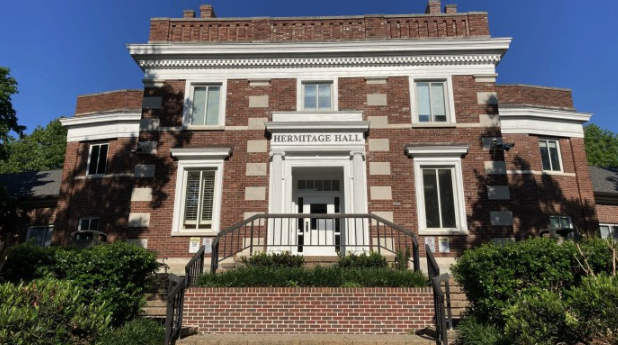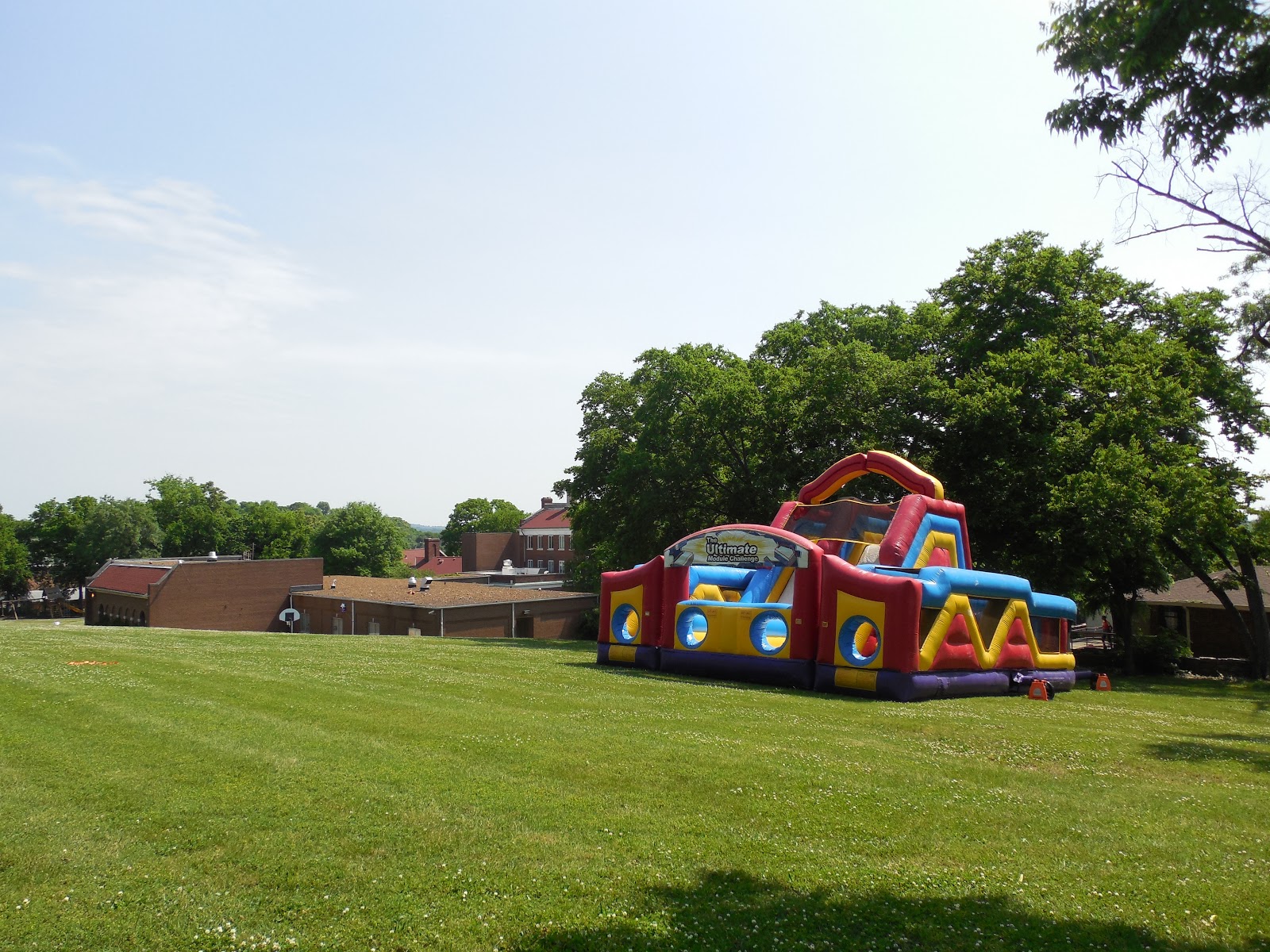Overview
Hermitage Hall is a comprehensive addiction treatment facility that treats co-occurring mental health issues and drug use disorders together. It is situated in Nashville, Tennessee, and provides a broad variety of treatments. With an emphasis on developing individualized treatment programs that address each patient's particular requirements, the institution offers specialized care for adults, kids, veterans, and members of the armed forces. Hermitage Hall maintains the highest standards of care as a CARF-accredited facility, guaranteeing that patients get high-quality care in a comforting setting.
Hermitage Hall offers a wide range of services in its treatment programs, such as detoxification, trauma therapy, psychiatric services, inpatient and outpatient care, and dual illness treatment. To create complete treatment programs, their integrated approach starts with biopsychosocial examinations to determine the severity of mental health issues and addiction. Individual, group, cognitive behavioral, motivational interviewing, and family counseling are all provided to patients in combination. Medication-assisted therapy (MAT), which combines FDA-approved drugs with behavioral treatments to improve recovery results and lower the risk of relapse, is another component of specialized programs.
Hermitage Hall provides a controlled and secure environment for detoxification, with medical staff regularly monitoring patients to guarantee their comfort and safety during the withdrawal period. In order to assist people overcome their physical reliance on drugs or alcohol and to get them ready for further therapeutic treatments, this early stage is crucial. Using evidence-based techniques, the center's inpatient addiction treatment program offers patients a comprehensive range of services, including medication management, mental health evaluations, relapse prevention, and a variety of therapy modalities intended to support long-term recovery.
Hermitage Hall offers specialty programs for children and teenagers with severe emotional and behavioral disorders, including those who have been traumatized by violence, sexual abuse, trafficking, or neglect, in addition to addiction treatment. Their trauma-informed methodology places a strong emphasis on establishing a supportive and stable atmosphere that builds trust and encourages the growth of positive behaviors, self-worth, and emotional fortitude. In order to assist young people establish a solid basis for the future, the residential program offers them therapeutic treatments, life skills training, and educational support.
In keeping with its goal of providing therapy to as many people as possible, Hermitage Hall takes a variety of payment methods, including self-pay, private insurance, Medicare, Medicaid, Tricare, and state financing. In addition, the facility's court-ordered treatment services provide those referred by the legal system the chance to finish addiction treatment programs instead of being charged with a crime. To maintain their progress, participants may partake in full residential treatment, which is followed by continuing outpatient programs and recovery support groups.
Hermitage Hall is committed to offering top-notch care to those battling addiction and mental health illnesses, as shown by its accreditation as a CARF-accredited treatment facility, which is based on strict quality and safety requirements. Hermitage Hall fosters hope, healing, and long-term recovery by empowering people and families to overcome the obstacles of addiction and mental health disorders via its all-encompassing, evidence-based approach.
Hermitage Hall at a Glance
Payment Options
- Medicaid
- Private health insurance
- State corrections or juvenile justice funds
- State education agency funds
- Cash or self-payment
Assessments
- Comprehensive mental health assessment
- Comprehensive substance use assessment
Age Groups
- Children/adolescents
- Adolescents
Operation
- Private for-profit organization
Accreditations
Commission on Accreditation of Rehabilitation Facilities (CARF):

CARF accreditation is a globally recognized certification for rehabilitation and human service organizations. It signifies that an organization meets high-quality standards and is committed to providing top-level care. Achieving CARF accreditation involves a rigorous evaluation process, including on-site surveys. This accreditation enhances an organization's reputation, instills trust in clients and funders, and encourages ongoing excellence in the field.
Treatment At Hermitage Hall

Conditions Treated
24-Hour Clinical Care:
At certain points in the recovery process, it's important to have support available 24/7. 24-hour clinical care offers a safe environment in which to recover from drug or alcohol addiction in peace, knowing medical detox and other treatment will happen with professionals on hand.
Mental health treatment:
Mental health treatment involves various therapies and support services provided by licensed professionals to address mental health issues. These interventions, which can include therapy, medication, and holistic approaches, aim to enhance well-being, improve coping, and empower individuals to lead fulfilling lives. It's personalized, comprehensive care for mental health challenges.
Alcoholism:
Alcohol addiction is when a person becomes physically and mentally dependent on alcohol, leading to mood swings, impulsive actions, intense cravings, and withdrawal symptoms. Treatment includes supervised detox, therapy, and support groups. It's important to note that rehabilitation doesn't "cure" alcoholism, but it helps individuals better manage their addiction, regain their ability to function in daily life, and improve their overall well-being.
Opioid Addiction:
Opioid rehabs specialize in supporting those recovering from opioid addiction. They treat those suffering from addiction to illegal opioids like heroin, as well as prescription drugs like oxycodone. These centers typically combine both physical as well as mental and emotional support to help stop addiction. Physical support often includes medical detox and subsequent medical support (including medication), and mental support includes in-depth therapy to address the underlying causes of addiction.
Substance use treatment:
Substance use rehabilitation represents a holistic treatment strategy tailored to aid individuals grappling with drug or alcohol addiction. This comprehensive rehabilitation method encompasses two key aspects: first, addressing the physical dependency, often commencing with detoxification, and second, tackling the psychological triggers through a range of therapeutic techniques. The ultimate aim is to empower individuals to attain and sustain sobriety while providing them with the necessary skills and coping mechanisms to successfully reintegrate into society and lead a life free from substance abuse.
Co-occurring Disorders:
Dual-diagnosis rehabilitation centers usually offer the most suitable approach for addressing concurrent mental health and substance abuse conditions. Within these facilities, a team of medical and behavioral professionals is typically assembled, employing diverse interventions and cultivating an optimal therapeutic environment to enable you to attain and maintain lasting recovery. The treatment regimen often encompasses evidence-based therapies, such as cognitive behavioral therapy, complemented by recovery support gatherings, 12-step program facilitation, skills development, and group therapy.

Levels Of Care
Hospital inpatient/24-hour hospital inpatient:
During specific phases of the recovery journey, it becomes crucial to have around-the-clock support. 24-hour clinical care provides a secure setting for individuals to heal from drug or alcohol addiction, with the reassurance that medical detox and other treatments will be administered by skilled professionals.
Detoxification:
Detoxification, often just called "detox", is like giving the body a deep clean from harmful substances like drugs or alcohol. When someone decides to stop using these substances, their body might react with tough symptoms. Detox helps to handle these reactions safely. Think of it as helping the body reset after too much exposure to harmful stuff.
Aftercare:
Aftercare refers to the structured support and programs offered to individuals after completing an initial treatment phase for substance abuse or other disorders. Recognizing that recovery is an ongoing process, aftercare provides continued counseling, skill-building, group therapy, and resources to help individuals maintain sobriety, manage triggers, and reintegrate into daily life, reducing the risk of relapse and ensuring long-term success in recovery.
Hospital inpatient treatment:
Inpatient treatment comprises a thorough residential therapeutic program, during which patients reside on-site for a period generally lasting from 30 to 90 days. This immersive setting provides organized assistance, guaranteeing safety and a dedicated approach to recovery. The array of therapies available encompasses individual and group counseling, cognitive-behavioral therapy, holistic interventions, family therapy sessions, and experiential therapies. The primary goal is to address the physical, emotional, and psychological facets of addiction or mental health disorders, establishing a strong foundation for enduring healing.
Hospital inpatient detoxification:
Detoxification in a hospital involves a clinical oversight of the detox process. When an individual chooses to cease substance use, undergoing detoxification is essential. The advantage of a hospital-based detox is its sterile environment and its proficiency in administering the necessary medications for a safe detox.

Treatment Modalities
Family counseling:
Studies consistently show that the likelihood of sustainable recovery increases when family members are involved in rehab and substance abuse treatment. Genetic elements might influence susceptibility to drug and alcohol dependence and mental health challenges. Family interactions frequently contribute to addiction triggers. However, with the right education, family members can become pivotal support pillars during rehabilitation.
Individual psychotherapy:
Individual therapy, often referred to as psychotherapy or counseling, is a one-on-one therapeutic interaction between a trained therapist and a client. It provides a confidential space for individuals to explore their feelings, beliefs, and behaviors, working through challenging memories, experiences, or emotions. The therapist facilitates self-awareness, promotes personal growth and insight, and offers coping strategies to manage specific issues like stress, anxiety, depression, and other life challenges. The ultimate goal is to improve the individual's mental well-being and enhance their overall quality of life.
Cognitive Behavioral Therapy:
Cognitive Behavioral Therapy (CBT) is a form of psychotherapy that emphasizes the critical role of thinking in how we feel and what we do. It aims to identify and challenge distorted or negative thought patterns and behaviors, teaching individuals to replace them with more constructive and rational beliefs. CBT is evidence-based and has been shown to be effective in treating a variety of psychological disorders, including depression, anxiety, and phobias, among others.
Dialectical Behavior Therapy:
Dialectical Behavior Therapy (DBT) for addiction treatment is a comprehensive cognitive-behavioral approach initially developed to treat individuals with borderline personality disorder. Adapted for addiction, DBT emphasizes the development of four core skills: mindfulness, emotion regulation, distress tolerance, and interpersonal effectiveness. Through individual and group sessions, patients learn to understand their triggers, manage negative emotions, cope with cravings, and improve relationships, all of which contribute to long-term recovery and reduced substance use.
Group counseling:
Group Therapy is a therapeutic space where individuals battling addiction come together to share experiences, gain insights, and support one another on their journey to recovery. Facilitated by trained professionals, this setting fosters communal healing and empowers participants to overcome the challenges of addiction through collective strength and understanding.
Experiential Therapy:
Experiential therapy is a therapeutic approach that encourages patients to identify and address hidden or subconscious issues through activities, interactions, and role-playing. Instead of focusing solely on talking, therapists use experiential techniques to help clients relive past traumas, express emotions, and gain insights into their behaviors. The aim is to foster personal growth and enhance self-awareness by immersing individuals in experiences that can lead to a deeper understanding of themselves and their relationships.
Nutrition Therapy:
Nutrition therapy, often referred to as medical nutrition therapy (MNT), harnesses the power of diet to address physical, emotional, and medical challenges. Expert nutritionists or registered dietitians craft specialized dietary strategies for individuals, guiding them to enhance both their physical and psychological well-being through food choices.
Marital/couples counseling:
Whether a marriage or other committed relationship, an intimate partnership is one of the most important aspects of a person's life. Drug and alcohol addiction affects both members of a couple in deep and meaningful ways, as does rehab and recovery. Couples therapy and other couples-focused treatment programs are significant parts of exploring triggers of addiction, as well as learning how to build healthy patterns to support ongoing sobriety.
Trauma-related counseling:
Trauma therapy addresses the deep-seated emotional and psychological wounds often linked with substance abuse disorders. Recognizing that traumatic experiences can be a root cause or a significant contributing factor to substance addiction, this therapeutic approach seeks to help individuals understand, process, and heal from their traumas. Doing so fosters emotional healing and bolsters the individual's chances of long-term recovery from addiction. Integrating trauma-informed care into addiction treatment ensures a comprehensive approach that addresses substance abuse's symptoms and underlying causes.
Eye Movement Desensitization and Reprocessing therapy:
Eye Movement Desensitization and Reprocessing (EMDR) Therapy is a psychotherapeutic approach designed primarily to treat trauma and post-traumatic stress disorder (PTSD). It involves the patient recalling traumatic events while undergoing bilateral sensory input, typically guided eye movements. EMDR aims to facilitate processing distressing memories, reducing their long-term impact, and helping individuals develop more adaptive coping mechanisms.
Eating Disorder Treatment:
Eating Disorder Treatment refers to the specialized therapeutic interventions and support provided to individuals struggling with various eating disorders such as anorexia nervosa, bulimia nervosa, binge-eating disorder, and others. This comprehensive and compassionate approach to care aims to address the physical, psychological, and emotional aspects of these conditions. Treatment typically involves a combination of medical supervision, nutritional counseling, psychotherapy, and support groups to help individuals regain a healthy relationship with food, their bodies, and themselves.
Life Skills:
Life Skills is a crucial component of rehabilitation that focuses on equipping individuals with the practical abilities necessary to maintain sobriety and lead fulfilling lives. These skills encompass a wide range of capabilities, including but not limited to time management, communication, problem-solving, stress management, and financial literacy. By acquiring and honing these essential life skills, individuals in addiction treatment gain the tools and confidence needed to navigate the challenges of daily life, reduce the risk of relapse, and ultimately achieve lasting recovery.
Creative Arts Therapy:
Creative Arts Therapy is a therapeutic approach that integrates visual arts, music, dance, drama, and other creative processes to promote emotional, mental, and social well-being. By facilitating self-expression, understanding, and healing, it aids individuals in exploring their emotions, improving self-awareness, enhancing cognitive abilities, and cultivating interpersonal skills. Tailored to each individual's needs and preferences, this modality is versatile and can be employed with diverse populations, addressing a wide range of psychological and developmental challenges.
Ancillary Services
Languages
- Spanish
Special Programs
- Children/adolescents with serious emotional disturbance (SED)
- Persons with eating disorders
- Clients who have experienced trauma
Contact Information
DISCLAIMER: The facility name, logo and brand are the property and registered trademarks of Hermitage Hall, and are being used for identification and informational purposes only. Use of these names, logos and brands shall not imply endorsement. BetterAddictionCare.com is not affiliated with or sponsored by Hermitage Hall.




